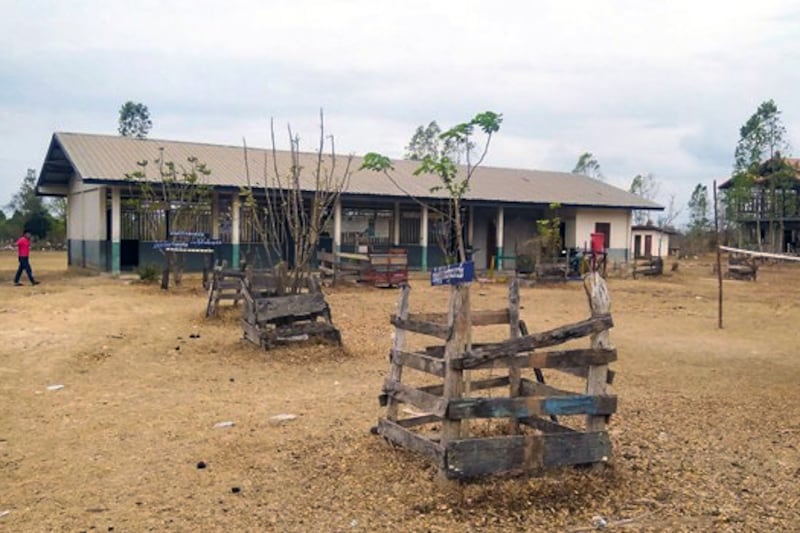Faced with a nationwide teacher shortage, the Lao government is turning to the military to solve the problem by training soldiers to teach classes, military and government officials told Radio Free Asia.
A total of 86 soldiers in a remote area of Savannakhet province, the south-central part of the country, were ordered to attend training so they can fill in at schools that need more teachers, a Lao military official told RFA Lao on condition of anonymity for security reasons.
There are more than 500 vacancies that need to be filled in the province, he said. In Savannakhet’s Xepon district, there are 109 schools, but only nine are adequately staffed.
Nationwide, around 2,000 soldiers are to be trained as substitute teachers.
The shortage is a result of the country’s struggling economy -- school staff are government employees, and many young people had been working as volunteer teachers in classrooms until there is an opening for salaried staff.
But rampant inflation has made it less likely that volunteers will be offered a full-time state teaching job, and more volunteer educators have been walking away from the profession as a result.

“Because of our teacher shortage, we have to solve this problem now,” the official said. “When we have enough teachers, the soldiers can go back to do their military jobs.”
The training lasts six days. The soldiers-turned-teachers -- 83 of whom are high school graduates and three who made it as far as middle school -- will be expected to teach science and Lao language classes.
An official at the Ministry of Education told RFA Lao on condition of anonymity to speak freely that it was necessary to bring in the military to address the shortage, and that they would teach at elementary schools in the rural areas.
In some schools, students in different grades are placed in the same class and taught by the same teacher, a rural educator told RFA on condition of anonymity for safety reasons.
Commuting to and from schools in remote locations is lso very difficult, he said.
“The locations where tribes live are too far,” he said. “They have to combine students from the different classes and grades. Those soldiers are going to help schools in the areas that they really need first.”
Edited by Eugene Whong and Malcolm Foster.
RELATED STORIES
Lorem ipsum dolor sit amet, consectetur adipiscing elit
Lorem ipsum dolor sit amet, consectetur adipiscing elit
Lorem ipsum dolor sit amet, consectetur adipiscing elit
